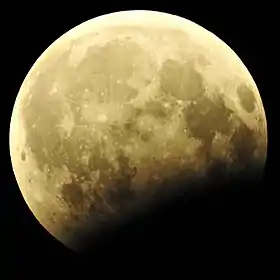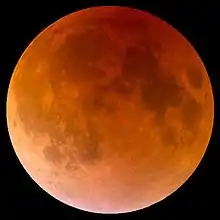August 1952 lunar eclipse
A partial lunar eclipse took place on August 5, 1952. The Earth's shadow on the moon was clearly visible in this eclipse, with 53.2% of the Moon in shadow; the partial eclipse lasted for 2 hours and 27 minutes. The moon's apparent diameter was larger and Supermoon because the eclipse occurred only 45 minutes before perigee.[1]
| Partial Lunar Eclipse August 5, 1952 | |
|---|---|
| (No photo) | |
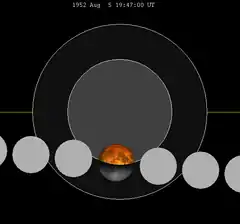 The moon passes west to east (right to left) across the Earth's umbral shadow, shown in hourly intervals. | |
| Series | 118 (48 of 74) |
| Duration (hr:mn:sc) | |
| Partial | 2:27:12 |
| Penumbral | 4:38:28 |
| Contacts | |
| P1 | 17:28:11 UTC |
| U1 | 18:33:49 |
| Greatest | 19:47:25 |
| U4 | 21:01:01 |
| P4 | 22:06:39 |
Visibility
The partial eclipse was visible from Europe, Africa, Asia, and Australia, seen rising over eastern South America and Atlantic, and setting over Pacific.
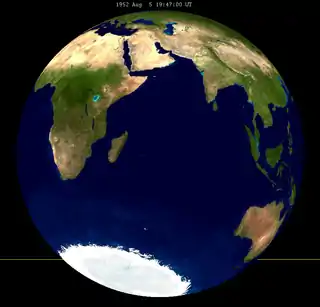
Related lunar eclipses
Lunar year series
| Descending node | Ascending node | |||||
|---|---|---|---|---|---|---|
| Saros | Date Viewing |
Type Chart |
Saros | Date Viewing |
Type Chart | |
| 103 | 1951 Feb 21 |
Penumbral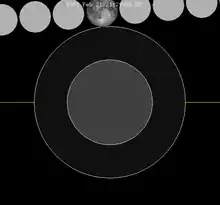 |
108 | 1951 Aug 17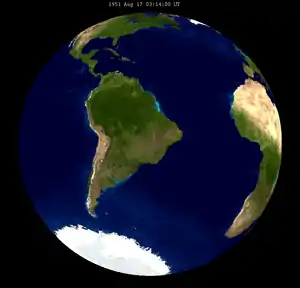 |
Penumbral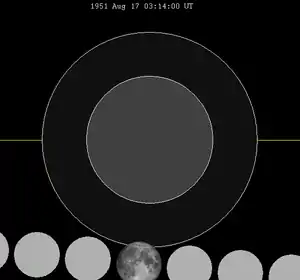 | |
| 113 | 1952 Feb 11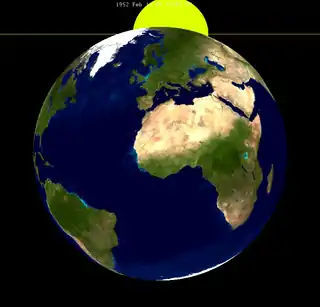 |
Partial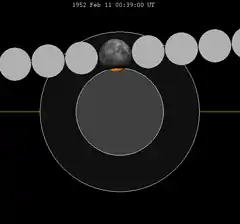 |
118 | 1952 Aug 5 |
Partial | |
| 123 | 1953 Jan 29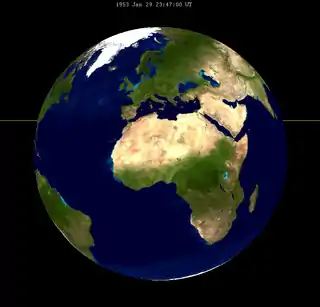 |
Total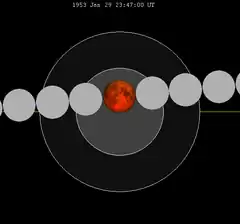 |
128 | 1953 Jul 26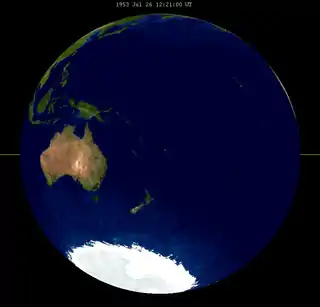 |
Total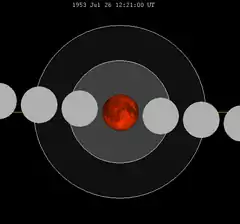 | |
| 133 | 1954 Jan 19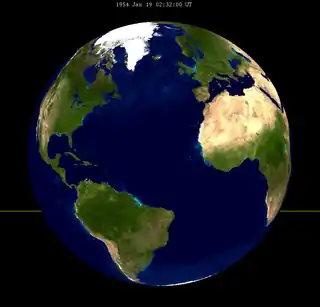 |
Total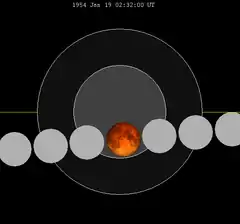 |
138 | 1954 Jul 16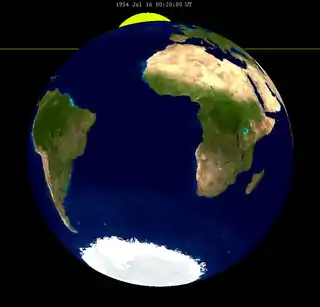 |
Partial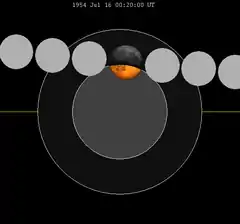 | |
| 143 | 1955 Jan 8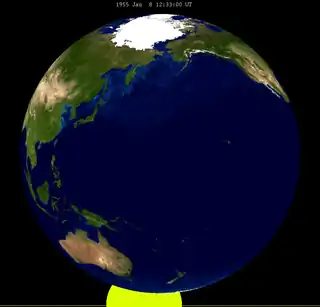 |
Penumbral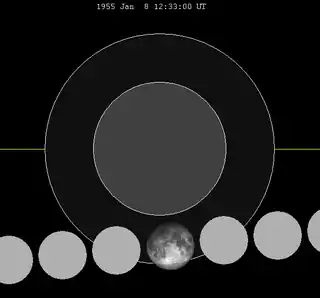 | ||||
| Last set | 1951 Mar 23 | Last set | 1951 Sep 15 | |||
| Next set | 1955 Nov 29 | Next set | 1955 Jun 5 | |||
Half-Saros cycle
A lunar eclipse will be preceded and followed by solar eclipses by 9 years and 5.5 days (a half saros).[2] This lunar eclipse is related to two annular solar eclipses of Solar Saros 125.
| August 1, 1943 | August 11, 1961 |
|---|---|
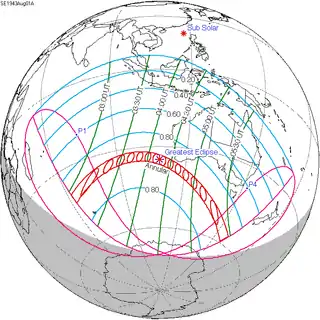 |
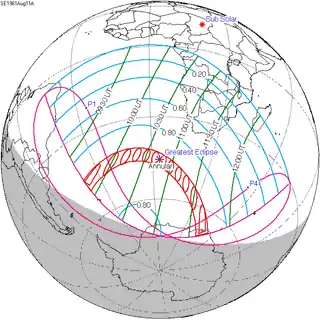 |
See also
- List of lunar eclipses
- List of 20th-century lunar eclipses
Notes
- Hermit Eclipse: Saros cycle 118
- Mathematical Astronomy Morsels, Jean Meeus, p.110, Chapter 18, The half-saros
This article is issued from Wikipedia. The text is licensed under Creative Commons - Attribution - Sharealike. Additional terms may apply for the media files.
